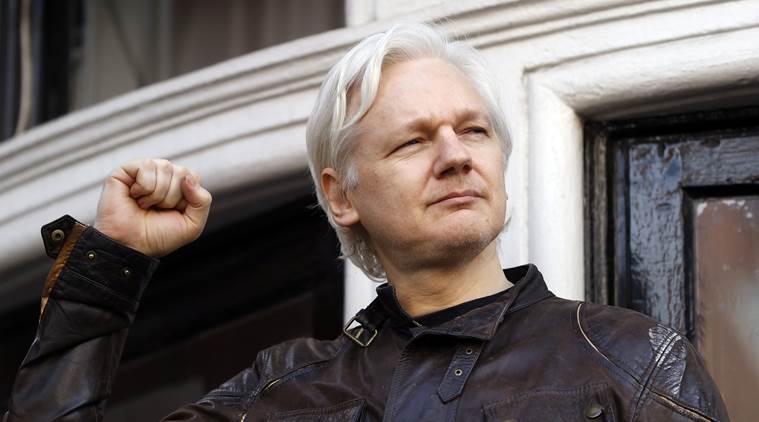Assange to appear before Senate?
August 10, 2018 | Expert Insights

Australian computer programmer and founder of WikiLeaks is pondering the possibility of appearing before a US Senate Committee.
Background
Julian Assange is an Australian computer programmer and founder of WikiLeaks who was thrust into international attention in 2010 when he leaked documents related to US’s war-time operations in Afghanistan and Iraq. The documents and video tapes were provided by Chelsea Manning, a former intelligence analyst in the US Army.
Following the leaks, the US Government launched a criminal investigation into Manning and WikiLeaks. Sweden issued an international arrest warrant for Assange in an unrelated sexual assault case and he surrendered to UK Police in December 2010. After receiving bail, he absconded and sought asylum in the Embassy of Ecuador in London. He has remained in the Embassy ever since and has held Ecuadorian citizenship since December 2017.
A Senate Committee or a Senate hearing is the principal method by which the US Senate Committees, and the US Congressional Committees in general, collect and analyse information in the early stages of legislative policymaking.
Analysis
The invitation extended by the Senate Intelligence Committee stems from a need to discuss alleged Russian interference in the 2016 Presidential Election. WikiLeaks published a letter from the US Senate which asked Assange to appear before a Senate committee to testify if Russia helped the Donald Trump campaign. Prior to the 2016 elections, WikiLeaks published a series of emails from the Democratic Party and the personal email account of John Podesta, chairman of Hillary Clinton’s Presidential Campaign.
The Senate invitation is the living embodiment of the adage “the enemy of my enemy is my friend”. Until this year, Assange was being pursued as an enemy of the state by American officials, citing his willful violation of a dozen laws which guard its national security. However, as they have found a need for his services, the Senate is willing to cooperate and provide him with a platform to testify about Russian involvement in the 2016 Election.
Assange’s lawyer has reiterated the need for a guarantee from the US government regarding the protection against arrest or any other form of illegal detention during or after the Senate hearing. Due to his past actions, Assange is fearful of an extradition to the US and being tried for treason, violating a dozen different laws and host of other criminal charges associated with violating the Espionage Act.
A larger implication of this invitation is on the Muller investigation, tasked with ascertaining the possibility of any foreign interference in the 2016 Presidential Election. Robert Muller has suspected collusion between the Trump campaign and Russian hackers, who coordinated a systematic disinformation campaign against Hillary Clinton before the elections. If Assange testifies against Russian interference and therefore the existence of collusion, it may be the single most consequential Senate hearing of this decade and, possibly, beyond.
At this point in time, Assange is the key for both the Senate hearing and the Muller investigation, which he could use as leverage. The invitation from the Senate has increased his value to the US government ten-fold as he now stands on the cusp of a historic Senate hearing.
Counterpoint
Although he may be the key to the hearing and the Muller investigation, Assange may decide not to attend the hearing at all, downplaying the importance of his testimony as an attempt to bring him on US soil. WikiLeaks deliberately released sensitive emails from the Clinton Campaign in 2016 not just to highlight the shortfalls of her campaign but to hurt the establishmentarian elite, who were the opposite of Trump when he promised to “Drain the swamp”. Assange may not have helped the Trump campaign out of duty, but his actions greatly benefited Donald Trump’s candidacy.
Assessment
Our assessment is that Julian Assange will decide to attend the Senate hearing but not before he is able to strike out a deal with the US government. As he is a person of interest who possesses knowledge of extraordinary value, he is in a position to bargain for his freedom in exchange for his testimony against Russian interference. We also feel that there may be a pushback from the White House regarding the Senate Hearing, considering the trend thus far that the White House has set against the Muller investigation.








Comments